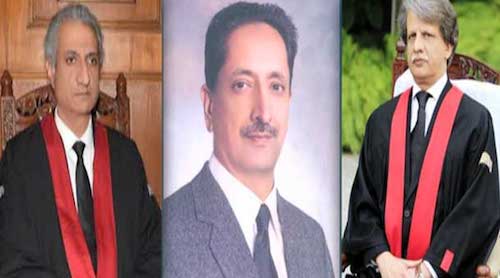Supreme Court’s Justice Ejaz Afzal Khan has upheld that the parliament cannot replace Islam with secularism.
In the landmark judgment on the 21st and 18th Amendments, Justice Ejaz Afzal Khan of the Supreme Court discussed the importance of the Two-Nation theory and the Objectives Resolution. Justice Ijaz Ahmad Chaudhry also endorsed the judgment.
Justice Ejaz in his 120-page dissenting note, observed that the incessant recurrence of anti-Muslim riots in India and atrocities committed against the Muslims in occupied Kashmir by the Indian security forces unabated continuity had left little doubt that the demand for a separate homeland based on the Two-Nation Theory was perfectly justified from whatever angle it was looked at.
“Islam, as aptly put by AK Dogar, petitioner in Constitution Petition No. 20 of 2010, is a structural base of the homeland founded for Muslims based on the Two-Nation Theory. Therefore, the parliament cannot replace Islam with secularism nor can it replace the Federation with a confederation. This is what the Muslims of the subcontinent aspired and endeavoured for. This is in essence, the raison d’etre for establishing the separate homeland,” he elaborated.
On the other hand, Justice Asif Saeed Khosa believed that the people and society of one given time cannot be held as hostage to or slave of the aspirations, objectives, values, morality or ethos of their forefathers, adding that evolution of people and societies is a reality and it would be nothing but naïve to believe or hold otherwise.
He further said that the people of East Pakistan lost their commitment to Pakistan and the lofty ideals attached to its creation, broke away and carved out a new State for themselves with new ideals and commitments.
Also read:Majority of Supreme Court judges declare parliament’s powers to be limited






